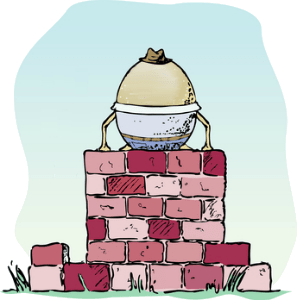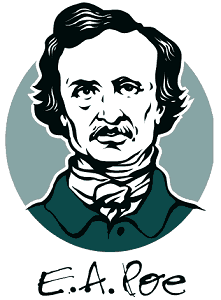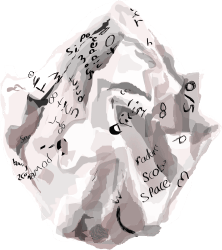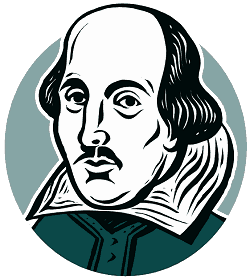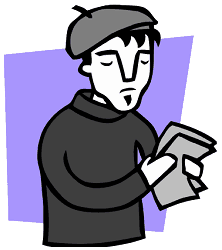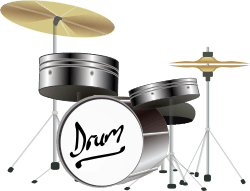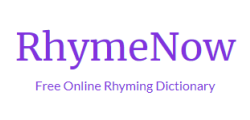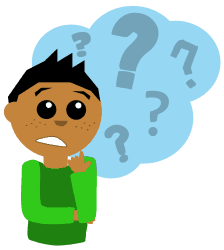
“Writer’s block” is an expression that describes how it feels when it seems like you can’t write. Maybe you’re working on a particular poem and then you just start to feel stuck, not knowing how to finish it. Or maybe you sit down to write and you just can’t think of anything at all to write about. Either way, writer’s block can feel pretty discouraging.
The good news is that there are lots of easy ways to break free from writer’s block and start writing again. Next time you feel blocked, give one of these tips a try:
1. Get Goofy
Writer’s block can make you feel very serious, so one way to break free is to get silly. Try to write the most awful, ridiculous poem in the world. Write a poem complaining about how you can’t possibly write a poem right now because of all your terrible problems. Or write your poem from the point of view of your dog, or your lunch, or the dust bunnies under your bed.
2. Make a List
Sometimes it helps to forget about writing in a poetry format for a while. Instead, just list all the things you want someone to know about what your poem will be like after you write it. Or, if you don’t like making lists, just start writing or typing the words “This poem is going to be about…” and then finish the sentence. Try to keep writing without stopping for at least five minutes. When you’re done, you’ll have lots of ideas about how to finish your poem.
3. Try Something Different
Maybe you need a totally different way to write for a while. Instead of writing a free verse poem, try your hand at rhyming couplets. Or instead of sitting at your desk to write, stand up. If you’re really stuck, stand on one foot, or write with the opposite hand for a change. Or get outside of your usual writing place to sit in a park, in the passenger seat of a car, or in a bookstore or library.
4. Go for a Walk
Physical activity is really good for busting you out of a writing rut and resetting your brain. So is a change of scene! You can go for a walk in your neighborhood, or take a bike ride, or jump on a trampoline, or even take a dance break—anything to get your body moving and distract your brain. You can come back to your writing in a few minutes, or even another day, and you’ll have fresh ideas.
5. Be a Reader Instead
Sometimes you can take the pressure off and inspire yourself at the same time. How? By picking up another writer’s work and enjoying it. It doesn’t even have to be poetry. You could read a short story, a graphic novel, or any kind of writing that reminds your brain what great writing can do. Reading can be a great warm-up for anytime you want to write a poem, or it can be a break from writing when your mind feels stuck.
Need More Ideas for Overcoming Writer’s Block?
StudyCorgi.com has an excellent article/infographic entitled “Beating Writer’s Block: 11 Awesome Tips” with even more suggestions on ways to break through your writer’s block.
No matter what you decide to try for your writer’s block, keep in mind that the best way to get un-stuck is to do something different. Start anywhere! Even a very small change can help a lot, and you’ll be writing poems again in no time.

